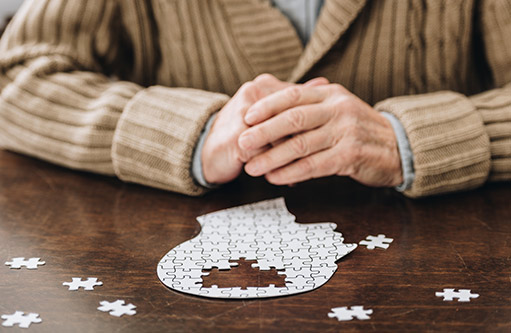
Dementia is a serious condition that affects millions of people around the world. It alters the brain and causes changes in thinking, behavior, and mood. Dementia can be mild or severe, but is a progressive disease that gets worse over time. Early diagnosis is key to getting the best possible treatment, so it’s important to be aware of the early warning signs.
It can be difficult to diagnose early on, as the signs and symptoms can be very subtle. However, there are some warning signs that may indicate the presence of dementia. If you or someone you know is experiencing any of the following, it’s important to see a doctor for an evaluation.
Stages of Dementia
Alzheimer’s disease is a disorder that affects the brain and leads to a progressive decline in cognitive function. It is the most common form of dementia, accounting for 60-80% of all cases. There are three stages of Alzheimer’s disease: mild, moderate, and severe.
Mild Stage
Patients may experience difficulties with memory, but they can still perform everyday activities. However, as the disease progresses, they may begin to forget how to do simple tasks, such as brushing their teeth or getting dressed. They may also have difficulty communicating and may become withdrawn or depressed.
Moderate Stage
Patients will require more assistance with activities of daily living. They may lose their ability to speak and may become agitated or aggressive. They may also experience hallucinations or delusions.
Severe Stage
Patients will need full-time care. They will be unable to communicate or recognize loved ones. They may be bedridden and unable to care for themselves. There is no cure for Alzheimer’s disease, but treatments are available to help manage symptoms and slow the progression of the disease.

Early diagnosis is key to getting the best possible treatment, so it’s important to be aware of the early warning signs.
Warning Signs of Dementia
Because dementia may be difficult to diagnose in the early stages, it’s important to be aware of the warning signs. If you or someone you know is experiencing any of the following, it’s important to see a doctor for an evaluation.
• Memory loss that disrupts daily life
• Challenges with planning or solving problems
• Difficulty completing familiar tasks at home, at work, or at leisure
• Confusion with time or place
• Trouble understanding visual images and spatial relationships
• New problems with words in speaking or writing
• Misplacing things and losing the ability to retrace steps
• Decreased or poor judgment
• Withdrawal from work or social activities
• Changes in mood and personality, such as depression, anxiety, or irritability
Salize, Avanti Senior Living’s Memory Care Program
Salize’s approach to memory care is unique. We focus on the whole person, not just the disease. Our comprehensive program includes a full range of services, from cognitive and physical therapies to social and recreational activities. Our goal is to help patients maximize their abilities and maintain their independence for as long as possible.
Final Thoughts
If you or someone you know is displaying any of these warning signs, don’t hesitate to see a doctor. Early diagnosis and treatment is key to managing the symptoms of dementia. If you need more information about Salize, or would like to schedule a tour, please contact us. We’re here to help!

